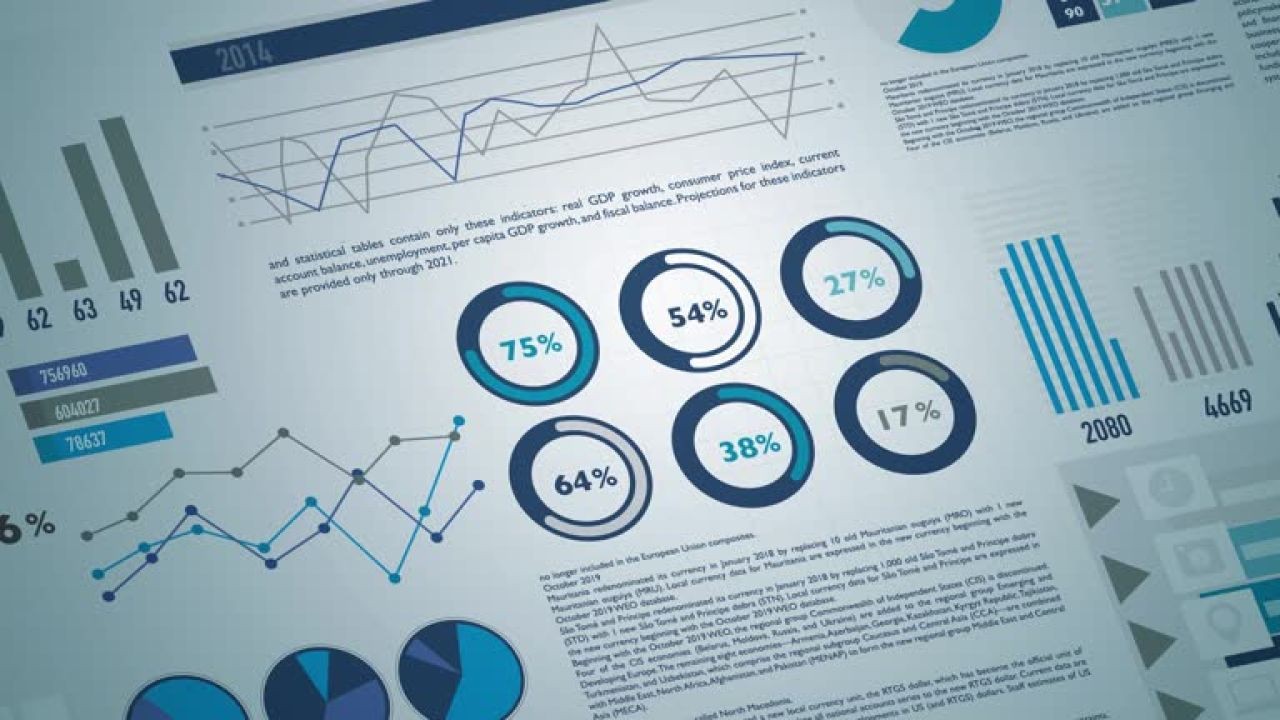In recent years, the juxtaposition between retail therapy and financial planning has become increasingly relevant in Australia. With the rising cost of living, changing consumer behaviors, and the impact of global economic shifts, Australians are faced with the dilemma of choosing between short-term gratification and long-term financial security. This article delves into this topic, exploring the underlying factors influencing these choices and their implications for the Australian economy.
Walk through any major Australian shopping precinct on a weekend and the contradiction is hard to miss. Cafés are full, bags from fast fashion and tech retailers swing from wrists, and buy-now-pay-later logos sit quietly at the checkout. At the same time, headlines warn of stubborn inflation, elevated interest rates, and households under pressure. The tension between retail therapy and financial planning has become one of the defining personal finance questions in Australia right now, not because Australians are reckless, but because the economic and cultural environment is nudging behaviour in subtle ways that are rarely discussed honestly.
This is not a moral story about overspending. It is a structural one about how Australians are navigating uncertainty, housing stress, and a cost-of-living squeeze while being surrounded by systems designed to make spending feel frictionless and planning feel abstract.
Why this question matters now in Australia
Australia’s household balance sheets look unusual by global standards. Many Australians hold significant wealth on paper through property, yet face high levels of debt and cash-flow stress. Rising mortgage repayments have coincided with higher everyday costs, from groceries to insurance. In this environment, traditional financial advice that emphasises long-term optimisation can feel disconnected from daily experience.
Retail therapy, once a casual phrase, has taken on a different meaning. Small discretionary purchases are often framed as coping mechanisms rather than indulgences. For policymakers and financial institutions, this raises an uncomfortable question. If Australians are prioritising short-term relief over long-term planning, is that a failure of individual discipline, or a rational response to the systems they are operating within?
The psychology behind short-term spending
Behavioural economists have long noted that people under stress tend to favour immediate rewards. In Australia, financial stress is increasingly common even among middle-income households. Mortgage holders rolling off low fixed rates have experienced sudden, material drops in disposable income. Renters face limited security and frequent increases. Against that backdrop, the appeal of a small, controllable purchase is easy to understand.
What is often missed is that this behaviour does not indicate ignorance of long-term consequences. Surveys consistently show Australians are aware of the importance of saving and superannuation. The issue is temporal distance. Retirement, home ownership for younger Australians, or even medium-term financial stability can feel increasingly out of reach. When the future feels uncertain or unattainable, short-term gratification becomes a rational psychological anchor.
How Australia’s consumer finance system shapes behaviour
Australia’s consumer finance ecosystem plays a significant role in normalising short-term spending. Buy-now-pay-later services, credit card rewards, and app-based budgeting tools coexist in a way that blurs the line between consumption and planning. These products are legal, regulated, and widely used, but they also reduce the immediate friction traditionally associated with spending.
Regulatory bodies such as ASIC have raised concerns about consumer understanding of these products, particularly among younger Australians. Yet the uptake continues. This is partly because these tools fit neatly into Australian consumer culture, which values convenience and flexibility. The system does not push people toward poor choices, but it makes those choices easier to make repeatedly.
Financial planning and the Australian trust gap
Another factor often overlooked is trust. Financial planning in Australia has been through a prolonged credibility crisis. Royal commissions and regulatory reforms have improved standards, but public confidence has been slow to recover. Many Australians remain wary of advisers, associating them with high fees or conflicted incentives.
As a result, long-term financial planning is frequently postponed or handled informally. People may contribute to superannuation through default arrangements while avoiding deeper engagement with budgeting, insurance, or investment strategy. In contrast, retail spending requires no trust in intermediaries. The transaction is immediate, transparent, and emotionally rewarding.
Housing, wealth perception, and distorted incentives
Housing occupies a unique place in the Australian psyche. For decades, rising property values reinforced the idea that wealth accumulation would happen almost automatically. This has influenced spending behaviour in ways that are still playing out. Homeowners with significant equity may feel financially secure despite limited cash flow, leading to consumption patterns that are not well aligned with long-term resilience.
For younger Australians locked out of property ownership, the dynamic is different but equally impactful. When home ownership feels unattainable, the incentive to delay gratification weakens. Financial planners often speak about goal-based saving, but goals that feel unrealistic lose motivational power. In this context, spending on experiences or small luxuries can feel like a rational reallocation of value.
The role of media and cultural narratives
Australian media plays a dual role in this debate. On one hand, there is extensive coverage of financial stress, mortgage pain, and economic risk. On the other, lifestyle content continues to normalise discretionary spending as a form of self-care. These narratives are not inherently contradictory, but they create a cognitive environment where mixed messages are constant.
What is rarely discussed is how these narratives interact. When Australians are told simultaneously that the future is precarious and that enjoyment should not be postponed indefinitely, it is unsurprising that many prioritise the present. This is not a failure of education but a reflection of competing cultural signals.
What experts actually disagree on
Among economists and financial counsellors, there is no consensus that increased discretionary spending is inherently problematic. Some argue that modest consumption supports mental health and local economies, particularly during periods of economic stress. Others warn that normalising short-term gratification risks entrenching financial vulnerability, especially as interest rates and living costs remain elevated.
The debate centres on proportionality rather than absolutes. Most experts agree that the danger lies not in occasional retail therapy, but in the absence of a coherent framework for decision-making. Without a clear understanding of trade-offs, small decisions can accumulate into structural problems over time.
Government policy and unintended consequences
Australian government policy has historically focused on encouraging long-term saving through mechanisms like compulsory superannuation. While effective in aggregate, this approach can mask short-term fragility. Super balances may grow while household cash buffers shrink. During periods of stress, this disconnect becomes visible.
Recent policy discussions have touched on financial literacy and consumer protection, but there has been less emphasis on aligning short-term incentives with long-term outcomes. For example, tighter regulation of consumer credit may reduce harm, but it does not address the underlying drivers of spending behaviour, such as housing insecurity and income volatility.
Are Australians really choosing gratification over planning?
Framing the issue as a choice risks oversimplification. For many Australians, the tension between retail therapy and financial planning is not a binary decision but a balancing act under constraint. People are making trade-offs within systems that often limit their options.
What no one is telling Australians clearly enough is that the current environment rewards immediacy and punishes patience in subtle ways. Planning still matters, but it requires tools, trust, and goals that feel credible in today’s context. Without those, short-term gratification is not a moral failing but a predictable outcome.
Understanding Retail Therapy in Australia
Retail therapy, the act of shopping to improve one's mood, has deep roots in Australian culture. According to the Australian Bureau of Statistics (ABS), retail trade turnover increased by 2.4% in 2022, indicating a robust consumer spending pattern. This trend is fueled by a combination of factors such as increased disposable income, the prevalence of buy-now-pay-later (BNPL) services, and the convenience of online shopping.
The Economic Impact
The Reserve Bank of Australia (RBA) notes that consumer spending accounts for nearly 60% of the GDP. Thus, retail therapy plays a significant role in driving economic growth. However, this short-term economic boost can lead to long-term financial instability for individuals if not managed properly.
Case Study: Afterpay's Influence on Consumer Behavior
Problem: Many Australians found themselves accumulating debt due to impulsive purchases facilitated by BNPL services like Afterpay.
- Action: Afterpay introduced spending limits and educational resources to promote responsible spending.
- Result: Over a year, the average debt per user decreased by 15%, showcasing a positive shift towards more mindful spending habits.
- Takeaway: While BNPL services can encourage retail therapy, they must be complemented with financial education to prevent debt accumulation.
The Case for Financial Planning
Financial planning, on the other hand, emphasizes long-term financial security over immediate gratification. The Australian Securities and Investments Commission (ASIC) advocates for financial literacy, highlighting its importance in achieving economic stability.
Financial Planning Trends in Australia
According to a study by the Financial Planning Association of Australia, there has been a 37% increase in individuals seeking financial advice since 2020. This shift is attributed to the growing awareness of the benefits of financial planning, such as wealth accumulation, risk management, and retirement security.
Case Study: A Successful Financial Planning Strategy
Problem: An Australian mining company struggled with cash flow management, impacting its operational efficiency.
- Action: The company engaged a financial planner to devise a comprehensive cash flow management strategy.
- Result: Within six months, the company reported a 25% improvement in cash flow, leading to enhanced operational efficiency.
- Takeaway: Effective financial planning can significantly improve a company's financial health and operational performance.
Retail Therapy vs. Financial Planning: A Balanced Approach
While retail therapy and financial planning are often seen as opposing concepts, a balanced approach can harness the benefits of both. For instance, incorporating financial planning principles such as budgeting and savings into one's lifestyle can enable Australians to enjoy retail therapy without compromising their financial health.
Pros and Cons
Pros of Retail Therapy:
- Immediate mood enhancement and stress relief.
- Stimulates economic growth and supports local businesses.
Cons of Retail Therapy:
- Potential for accumulating debt and financial strain.
- Can lead to impulsive buying and financial mismanagement.
Pros of Financial Planning:
- Ensures long-term financial security and wealth accumulation.
- Helps in managing risks and achieving financial goals.
Cons of Financial Planning:
- Requires discipline and a long-term commitment.
- May involve upfront costs for professional advice.
Common Myths and Mistakes
Myth: "Retail therapy is harmless if done occasionally."
Reality: Even occasional retail therapy can lead to financial strain if not managed with a budget (Source: ASIC).
Myth: "Financial planning is only for the wealthy."
Reality: Financial planning is beneficial for individuals across all income levels, as it helps in managing resources effectively (Source: Financial Planning Association of Australia).
Myth: "BNPL services are debt-free shopping solutions."
Reality: BNPL services can lead to debt accumulation if users do not adhere to repayment schedules (Source: ACCC).
What the next three to five years may hold
Looking ahead, this tension is unlikely to disappear quickly. Interest rates may eventually ease, but structural pressures such as housing affordability and demographic change will persist. Financial institutions and policymakers face a choice. They can continue to emphasise individual responsibility, or they can rethink how systems support Australians in bridging the gap between present needs and future security.
For individuals, the conversation may shift from restraint to realism. Financial planning that acknowledges stress, uncertainty, and the value of small pleasures is more likely to resonate than advice rooted in austerity. Retail therapy will not vanish, but its role may evolve as Australians seek ways to integrate enjoyment with resilience.
The real question is not whether Australians are choosing short-term gratification, but whether the systems around them make long-term planning feel worth the effort. Until that gap is addressed, spending behaviour will continue to reflect lived experience more than abstract ideals.
Future Trends and Predictions
The future of retail therapy and financial planning in Australia is poised for transformation. With the rise of digital financial tools and increased financial literacy, a more integrated approach is expected. By 2026, 70% of Australians are projected to use digital platforms for financial planning, as per a report by Deloitte.
Embracing Technology
Fintech innovations such as AI-driven budgeting tools and personalized financial advice are set to revolutionize the way Australians manage their finances. These tools will enable a more personalized and efficient approach to balancing retail therapy with financial planning.
Conclusion
In conclusion, Australians face the challenge of balancing retail therapy with financial planning. By adopting a more integrated approach that combines the immediate benefits of retail therapy with the long-term security of financial planning, individuals can achieve financial well-being. As technology continues to evolve, Australians have the opportunity to redefine their financial habits for a more sustainable future.
Final Takeaway & Call to Action
Are you ready to take control of your financial future? Start by evaluating your spending habits and incorporating financial planning into your lifestyle. Share your experiences or insights in the comments below, and join the conversation on LinkedIn or other industry forums. Together, we can foster a more financially secure Australia.
People Also Ask
How does retail therapy impact the Australian economy? Retail therapy boosts consumer spending, which accounts for nearly 60% of Australia's GDP (Source: RBA). However, excessive spending can lead to personal financial instability.
What are the biggest misconceptions about financial planning? A common myth is that financial planning is only for the wealthy. In reality, it benefits individuals across all income levels by managing resources effectively (Source: Financial Planning Association of Australia).
What are the best strategies for balancing retail therapy and financial planning? Experts recommend setting a budget for discretionary spending, using digital tools for financial management, and seeking professional advice when necessary.
Related Search Queries
- Retail therapy Australia
- Financial planning services in Australia
- Impact of BNPL services on Australian economy
- Australian consumer spending trends
- Financial literacy in Australia
- Future of financial planning in Australia
- Case studies on retail therapy
- Pros and cons of retail therapy
- BNPL services Australia
- Economic impact of consumer spending in Australia



































StevieLarn
7 months ago